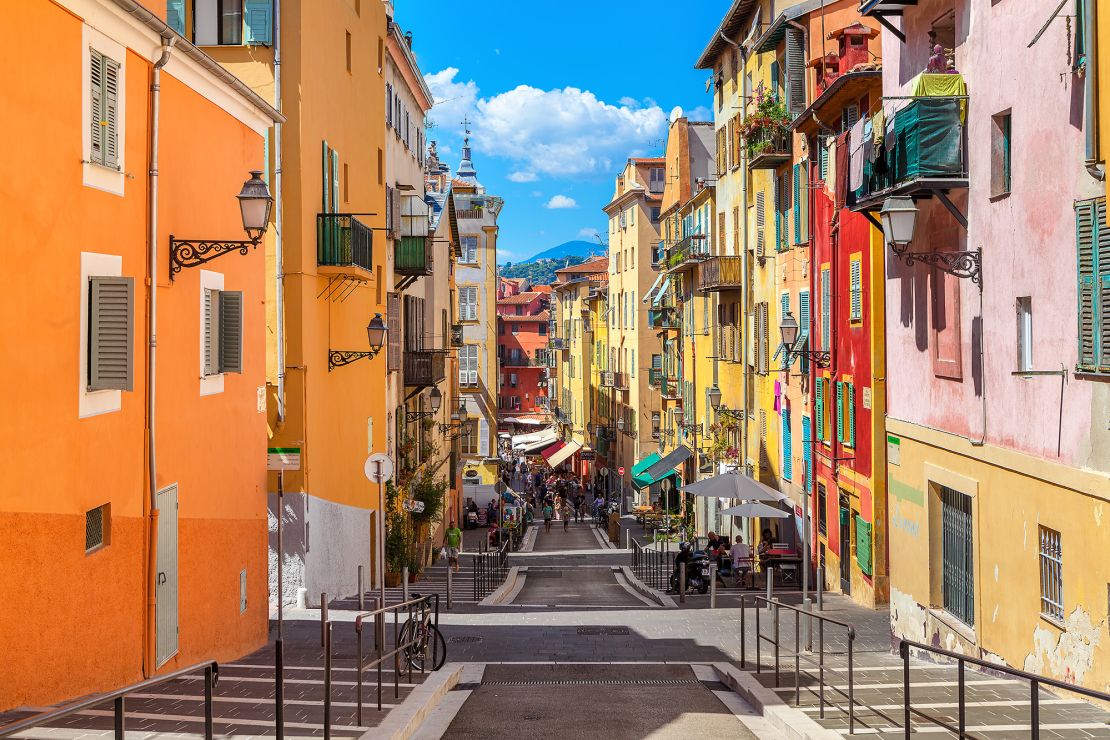CNN
—
Right after the election, Dana McMahan rented a tiny apartment in Paris, moved up the dates for a flight originally booked for a vacation and started the paperwork to apply for a four-year visa she hopes will allow her to work in the French capital.
McMahan, 50, has dreamed of living in France for a while. She first thought about bidding adieu to the United States when Donald Trump won the presidential election in 2016, she said. But while the idea had been brewing for some time, she had yet to take the leap.
“But I knew, going into this, that if this is the way the election went, then this had to happen,” said McMahan, who lives in Louisville, Kentucky.
McMahan objects to Donald Trump’s character and past behavior and has blogged about her distress that the nation chose him “over a confident, competent, easily qualified Black woman.”
She’s not alone. Interest in moving out of the US has spiked, with immigration businesses reporting a surge of inquiries since the election. And some Americans say the results have sealed their plans to leave the US.
It’s impossible to know how many Americans are seriously contemplating leaving the country. But there’s certainly evidence of a post-election surge in people exploring the idea.
Google Trends shows that US searches for “move Canada” reached a 12-month peak between November 3 to 9, before dropping back down to a level that’s just slightly above where the term has hovered through most of the last year.
But the surge of interest is unlikely to translate to a mass exodus. Moving to Canada was a hot topic after the 2016 election, but immigration statistics gathered later didn’t show a significant bump.
Moving abroad is a complicated process and there are a number of factors — jobs, kids in school, aging parents — that can hold back those who consider it.
Still, there’s a spike in people looking into the possibilities.
Immigration services sites Welcome to Portugal and Bureaucracy.es, which help Americans relocate to Portugal and Spain, told CNN they saw huge increases in traffic to their websites after the election as well as increased inquiries into visa processes.
Bureaucracy.es said the firm has seen more than a 300% increase in clients booking consultations for more information on the visa process in Spain since the election results were announced.
Marco Permunian of Italian Citizenship Assistance, a firm that helps pave the way to Italian citizenship, said he asked his team in Los Angeles to start work early the day after the election.
“By 6 a.m. California time, the phone was already ringing with people saying they wanted to move out,” he said, noting that the spike was roughly double what the firm calculated in 2016 after Donald Trump won.
Permunian said he has also recently heard from people who were considering leaving the US if Trump lost the election, but with “less of a sense of desperation” than those who do not support Trump.
Dana McMahan got a tattoo on her forearm during a recent visit to France that says Allons y — French for “Let’s go.”
And that’s what the writer, who is a Democrat, plans to do in January, when she’ll touch down in Paris to start a new life in a place she has visited since 2001 and said always felt like home.

Once she learned the election results, McMahan said she moved up the dates of a flight she’d booked to Paris for a vacation later in 2025 — and for a much longer stay.
Then she reached out to friends in the city and cast a wide net on social media asking if anyone knew of a place she could rent. By the next day, she’d found a tiny apartment in Paris’ 20th arrondissement for 1,100 euros per month, including utilities. She cashed in an IRA to pay for it.
McMahan plans to enter France on a tourist visa, and since the election has started the process of applying for the country’s four-year talent visa — a residence permit granted to self-employed people that include artists and writers.
The plan is that once McMahan gets the visa, her husband and dog can join her. But she’s under no illusion things will be easy, she said.
“It’s scary to do this, I’m 50 years old. My life is here in Kentucky. My family and friends. But this is really important I go and find out if Paris is truly my home. And I believe that it is.”
Others haven’t made as many concrete plans yet but feel an urgency to leave the United States.
One Black woman in a red state says living in the United States right now feels “like being a crab in a pot of water where the heat is being turned up to boil.”
The former federal law enforcement officer, who requested anonymity because of security concerns, said she woke up on November 6, turned to her husband and said, “It’s go time.”
The woman, a Democrat and mother of two, first started thinking about moving out of the United States in 2023, after the Supreme Court gutted affirmative action in college admissions. But the election was a turning point.
“I knew that if Trump was elected it would be full steam ahead,” she said.
The African American woman in her 40s said the affirmative action decision “makes it seem like African Americans are on equal footing and that racism is done and over with, and there’s no bias. And that’s just not the case.”
She is frustrated. “Just when it seems that things are starting to get better, it’s like we take one step forward and two steps back.”

For this family, the election feels like too many steps back to ignore.
But her kids weren’t onboard right after the election. Then one of them heard from a friend who had received one of the racist text messages referencing slavery that were sent to Black people around the country after the election. Her child was scared and understood then why their parents wanted to leave.
“Do I think that they would try to put Black people back into slavery? Realistically, no. I don’t think that Black people would go. But still, it’s just the fact that people are even in that mindset to send something so awful,” said the mother, who lives in a state that went for Trump.
She said she has started looking into the visa requirements in France, the family’s top choice for a move, followed by the Netherlands, Portugal and Spain. She may look into the possibility of getting hired by a firm abroad or pursue studies in those countries.
And while she “absolutely” would have stayed in the US had the Harris/Walz ticket won, she said by summer the family plans to be gone, as long as the visas come through.
“We’re going to figure it out and if it doesn’t work out there, we’ll come back. We’re not denouncing our citizenship. At least we’ll know we tried,” she said.
It’s staying in the US right now that feels untenable.
“I just wanted to get my degree and make change here,” said the woman, who is in graduate school. “But I feel like staying here now is like the people that stayed in Germany, the women that stayed in Iran in the 70s, the people who stayed in Afghanistan after knowing US troops were pulling out.”
Moving to another country is a big decision that requires not only navigating a new bureaucracy but acclimating to the culture, learning the language and finding friends and a routine, among other things, said Jen Barnett of Expatsi, a company that helps Americans sort through the process of moving abroad.
In the 10 months leading up to the election, Barnett said a total of 60,000 people had completed a test on her company’s website that helps match them with countries best suited to their requirements and situation. In the weeks after the election, Barnett said, more than 48,000 additional people had already taken the test.
To be sure, only a fraction of the people who look at this option follow through with a drastic move.
Even at home in the US, it’s not always easy to get up and switch states for one more aligned with your political beliefs.
Mai Nguyen, who lives in Florida, said she wants to leave the state for somewhere else in the US but is unable to because she shares custody of one child with her ex-husband.
“Not to be dramatic, but it doesn’t feel like it would be a safe environment to raise a girl anymore,” said Nguyen, who is a Democrat. “I don’t believe our public education system will be able to keep up with more progressive states and I don’t believe our laws will protect our girls.”
Nguyen said she might consider a move to her hometown of Danang in Vietnam at some point in the future, but her family is more likely to make a move closer to home.
“We will be looking at a blue state first,” she said.












